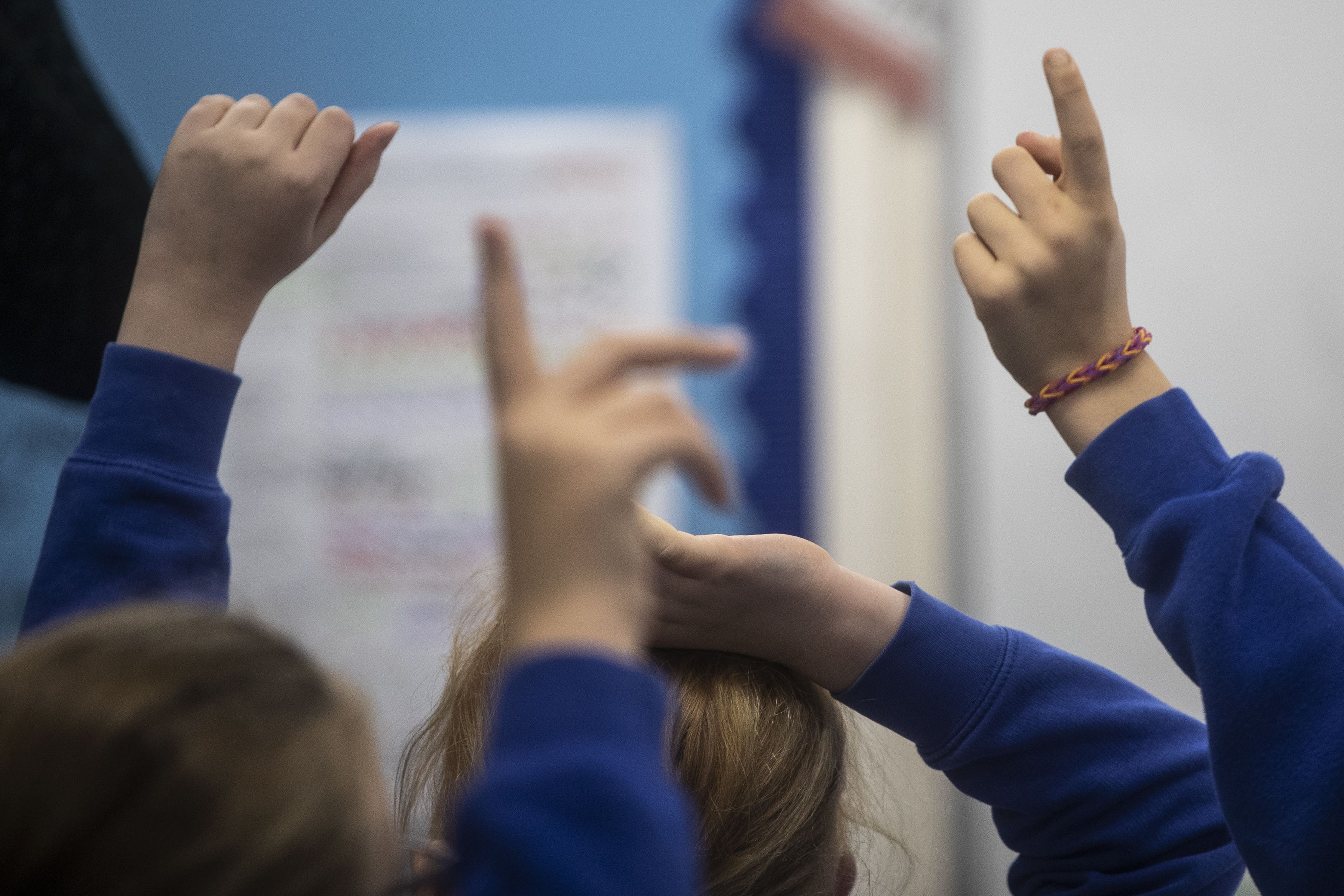What does the Government’s new transgender guidance mean for schools?
LGBT+ charities have called the draft guidelines published by the Department for Education ‘unworkable’ and ‘dangerous’.

The Government has finally published its draft guidance for schools and colleges in England on how to support pupils questioning their gender.
The non-statutory guidance – which will now be subject to a 12-week consultation before being finalised – comes after it was delayed from the summer.
– What does it say about ‘social transitioning’?
The guidance defines requests for “social transitioning” to mean taking actions – such as changing names, uniforms, or using different facilities – to help a pupil “appear more like the opposite sex, with the expectation that they will be treated as if they are”.
It says there is no “general duty” on schools and colleges to allow a pupil to undertake a form of social transition, and it suggests a “cautious approach” should be taken if a request is granted.
– Should parents be told when their child questions their gender?
The advice says parents “should not be excluded” from decisions taken by a school or college relating to requests for a child to socially transition.
Schools and colleges should engage parents as a matter of priority and encourage the child to speak to their parents – except in the “rare circumstances” where involving parents would constitute a “significant risk of harm to the child”, according to the guidance.
But it adds that teachers can listen respectfully to a child who tells them they are questioning their gender without “automatically alerting parents” if no change is being requested.
Although it says staff will not be able to “promise” confidentiality due to safeguarding reasons.
-What steps does it suggest taking before granting a social transition request?
The draft guidance says schools and colleges should allow a period of “watchful waiting” before considering a request to ensure it is “properly thought through”.
If after this period, the child would still like the request to be granted, schools and colleges are advised to take into account a variety of factors – including parents’ views, the age of the pupil and the “seriousness” of the request.
It adds that requests from younger children should be treated with “greater caution” and primary school pupils should not have different pronouns to their sex-based pronouns used about them.
-Will teachers and pupils be expected to use preferred pronouns?
The advice suggests there will be “very few occasions” in which a school or college will be able to agree to a change of pronouns.
It adds that no teacher or pupils “should be compelled” to use these preferred pronouns and it should not prevent teachers from referring to children collectively as “girls” or “boys”.
The guidance says no child should be sanctioned for “honest mistakes when adapting to a new way of interacting with another pupil”.
Schools and colleges must record a child’s legal name and sex in the admissions register, but they may allow pupils to change their names informally if it is in “the best interests of the child”.
-Should toilets, changing rooms and sports be separated by biological sex?
The guidance suggests that schools and colleges should provide separate toilets for boys and girls aged eight and above, and changing rooms and showers for boys and girls who are 11 or over at the start of the school year.
Schools and colleges should seek to find alternative arrangements for a child who does not want to use the toilet, changing room or showers designated for their biological sex “while continuing to ensure spaces are single-sex”.
The advice says a “more relaxed approach” for mixed-sex participation in sports can be taken for younger primary school children.
But it adds schools should adopt rules which mandate “separate-sex participation” for sports where physical differences between the sexes threatens pupils’ safety.
-What is the reaction to the guidance?
LGBT+ charities have called the Government’s draft guidance “unworkable” and “dangerous”.
A spokesperson for Stonewall said: “The UK Government’s draft trans guidance for schools does not put the best interests of children first, and as such is simply not fit for purpose.
“Not only is it legally unworkable and contrary to existing equality law and the Government’s own guidance on safeguarding – it is actively dangerous. If implemented, it would inevitably lead to real harm being caused to trans children and young people across England.”
A spokesperson for Mermaids, a transgender youth support charity, said: “All young people deserve an accepting and supportive school environment to learn and be their authentic selves.
“The UK Government’s draft trans guidance for schools in England seeks to prevent that. Its approach is unworkable, out of touch and absurd.”
But Lottie Moore, head of Biology Matters at centre-right think tank Policy Exchange, said the guidance was a “powerful rebuttal against activist demands which for too long have played havoc with the wellbeing of children”.
Meanwhile, Kate Barker, chief executive of the gay rights organisation LGB Alliance, called the guidance “a welcome step in the right direction”.
But former prime minister Liz Truss – who has put forward her own legislation that would mean social transitioning is not recognised by schools or the state in children – said the non-statutory guidance will provide “insufficient protection and clarity” and a “change in the law of the land is required”.
Bookmark popover
Removed from bookmarks